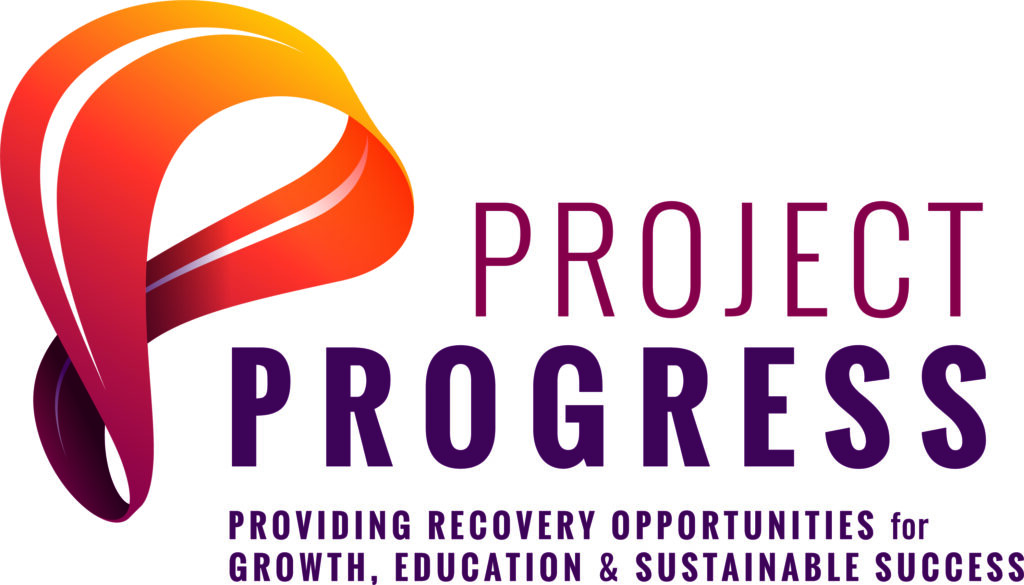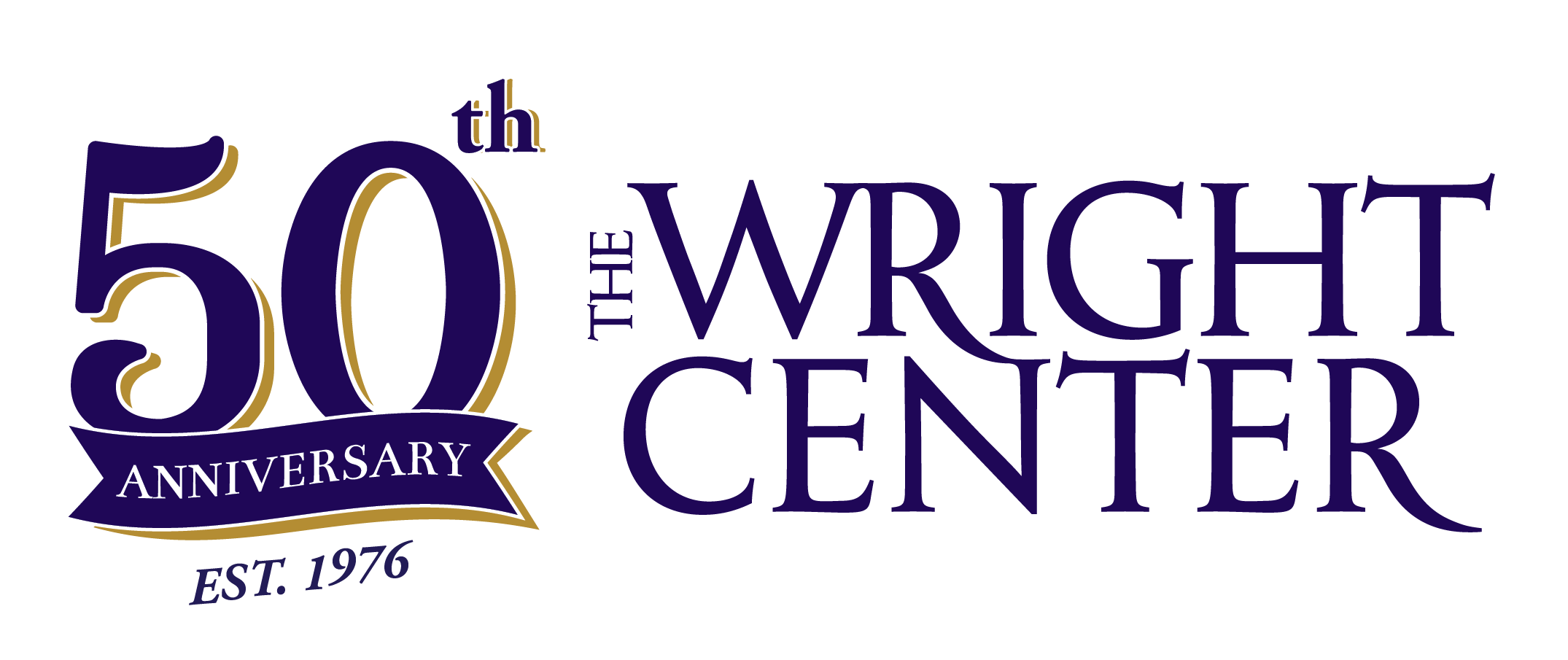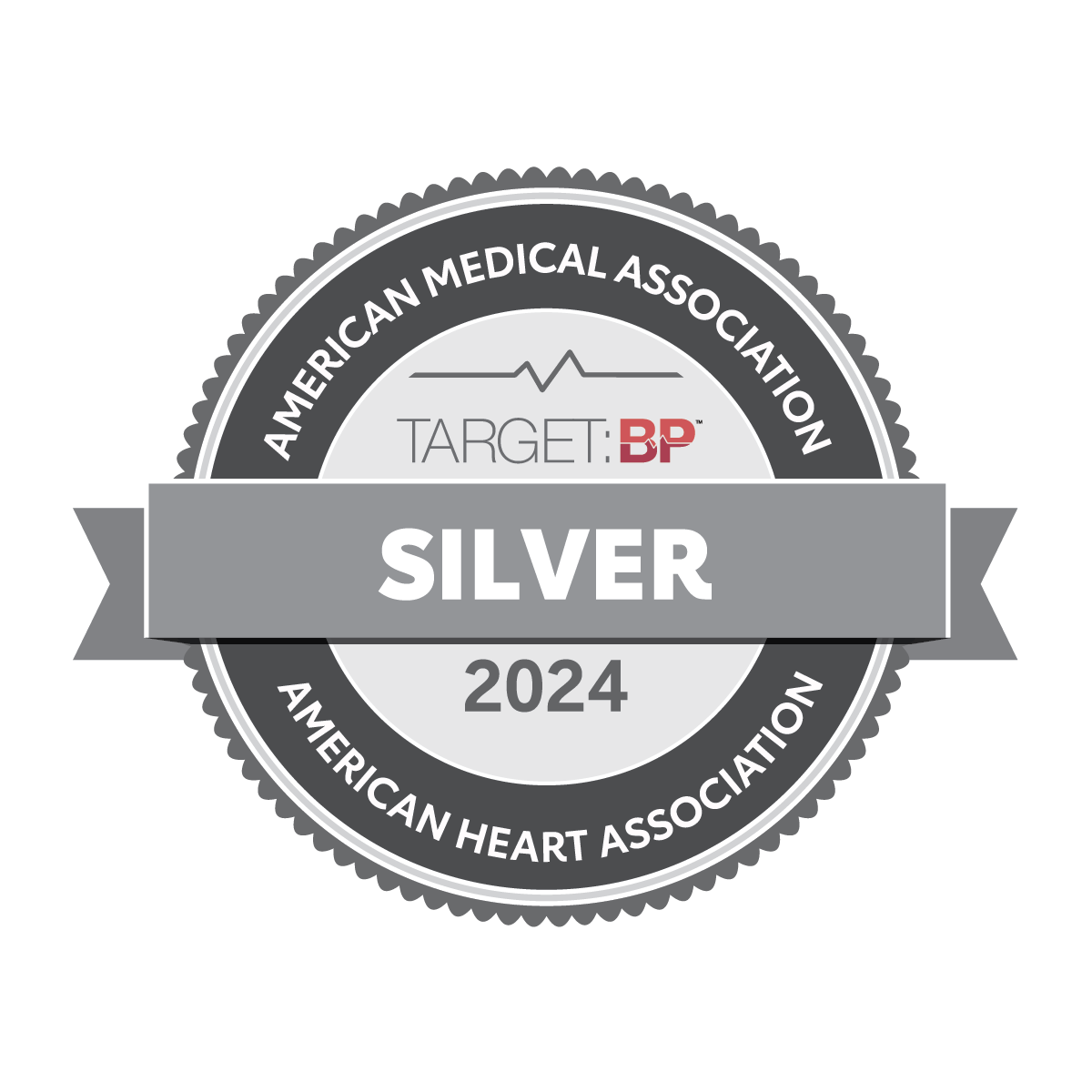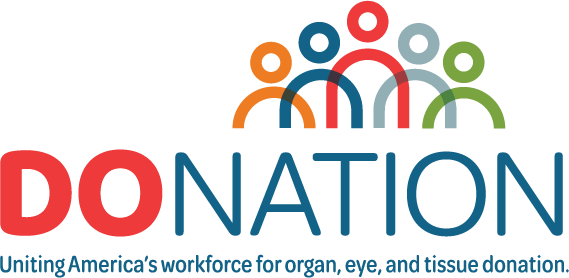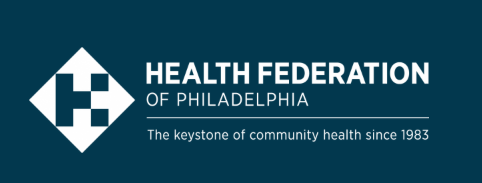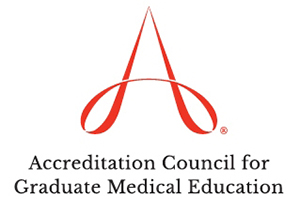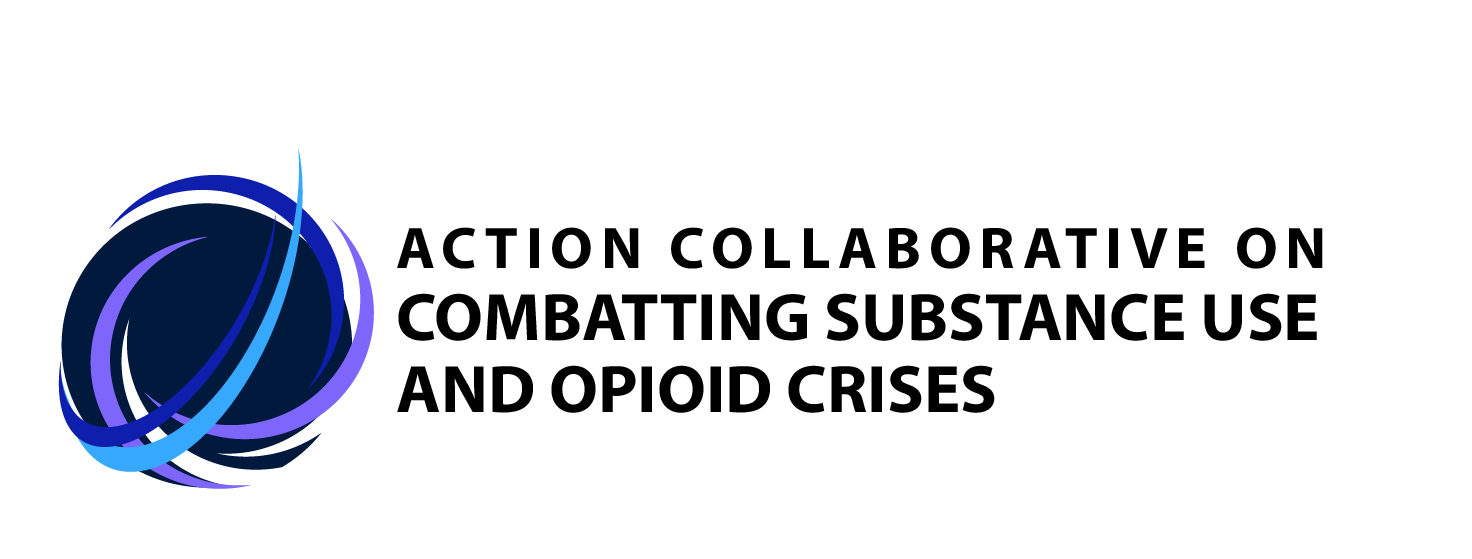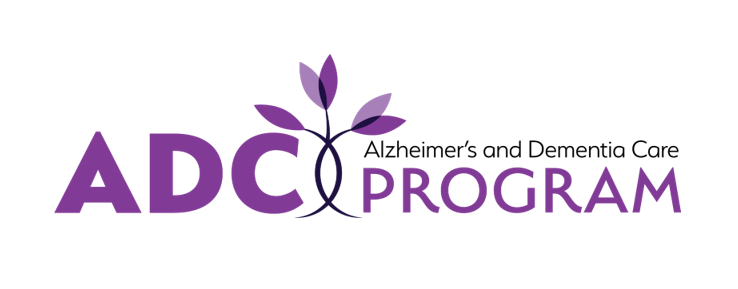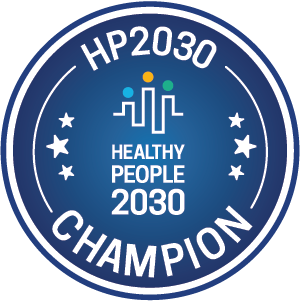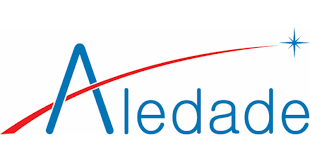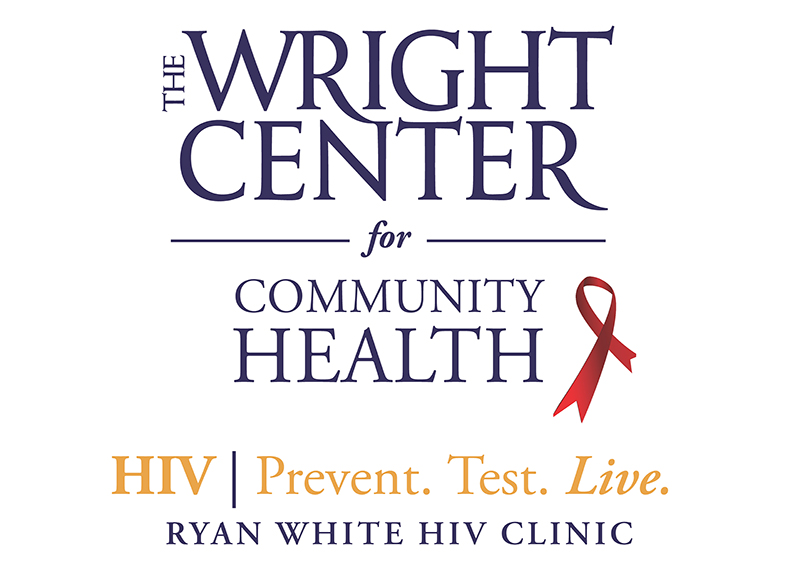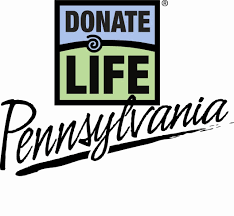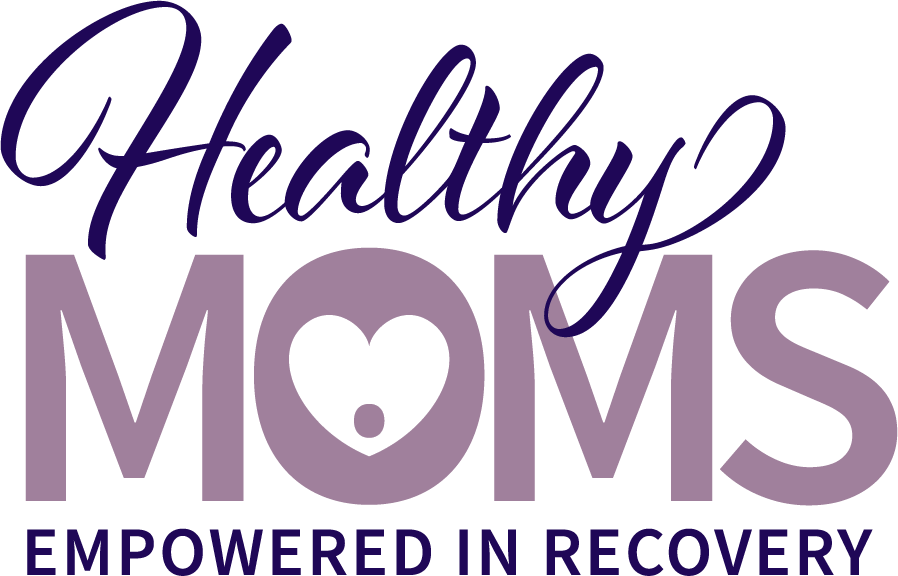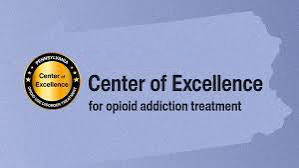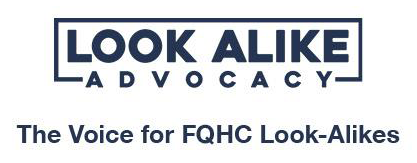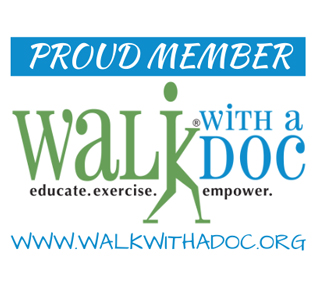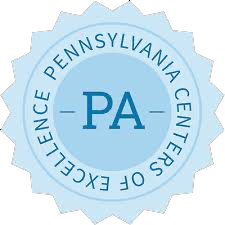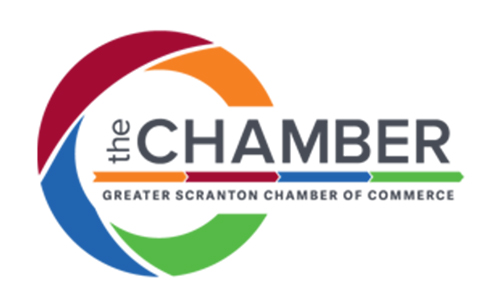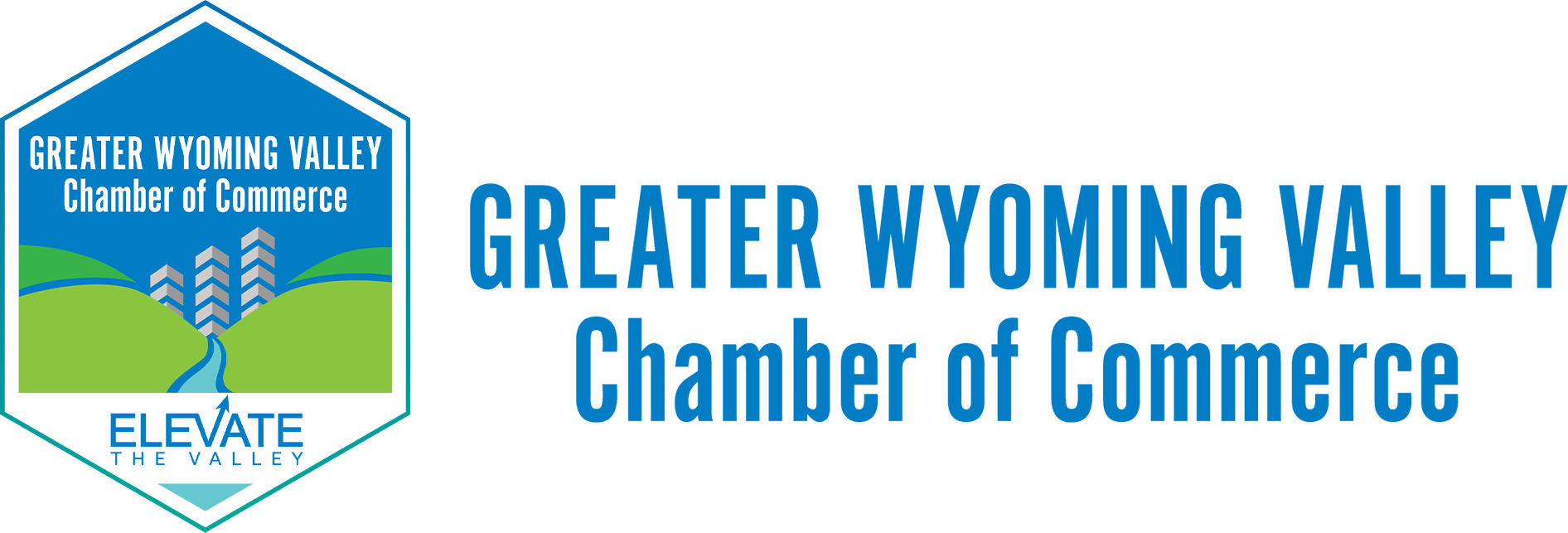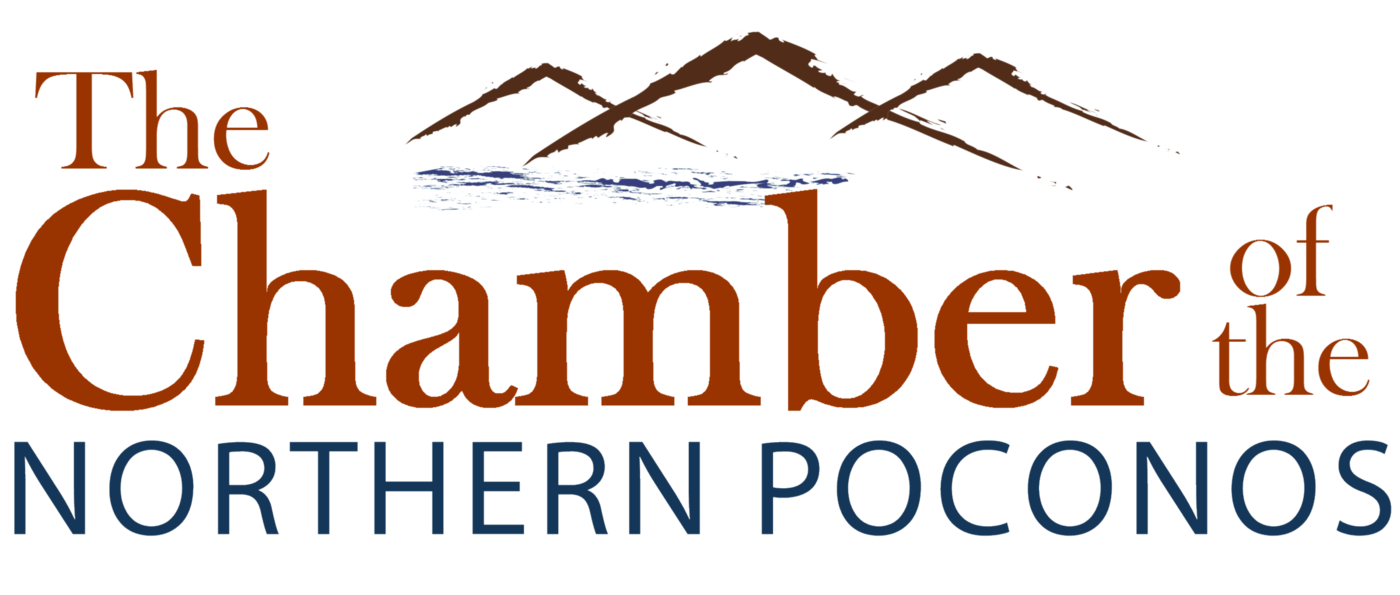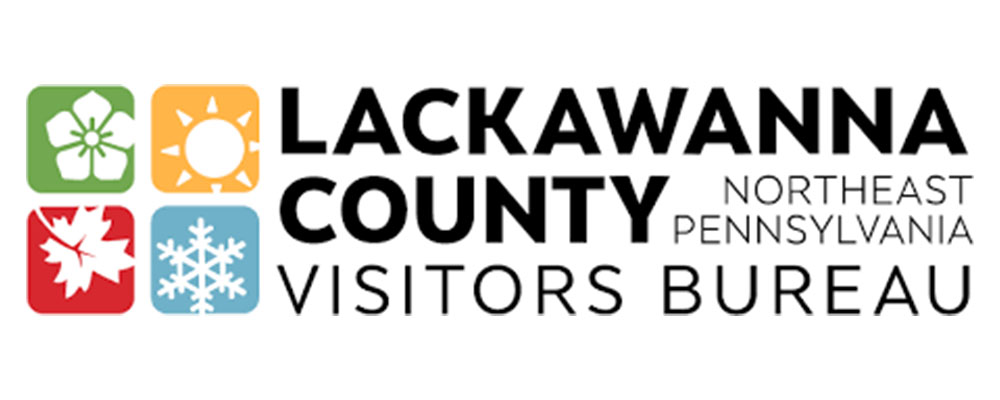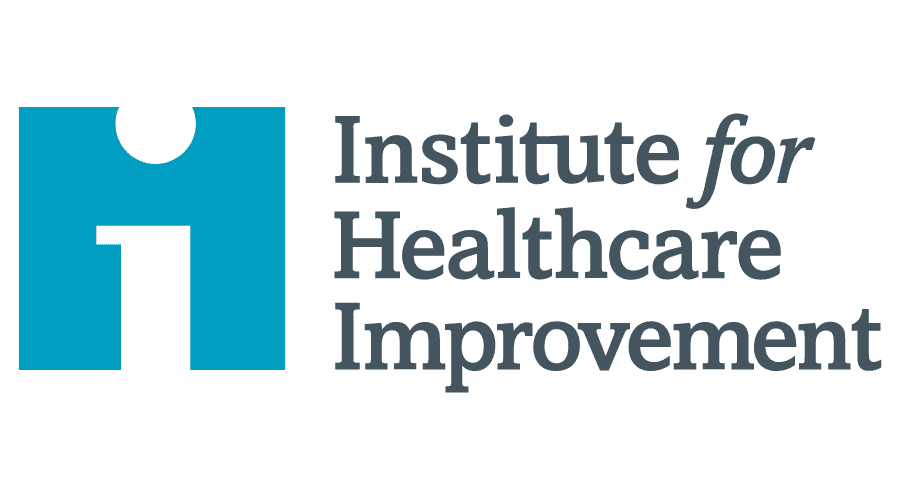Turning pain into Progress: How one man’s story fuels hope for others

Certified recovery specialist Rick Frey in his office at The Wright Center for Community Health Wilkes-Barre. After struggling with substance use disorder for 20 years, Frey has been sober for five years, and now helps guide patients in their own recovery journeys.
Five days a week, Rick Frey talks to people experiencing substance use disorder, helping them set goals, cheering on their successes, and sometimes pointing out inconsistencies in the stories they tell themselves.
He knows firsthand about the battles his patients fight every day. For 20 years, the certified recovery specialist at The Wright Center for Community Health lived with substance use disorder. A state prison sentence in 2020, coupled with the realization that he was failing his two young children, sparked Frey’s desire for a new kind of life.
He began working for The Wright Center in July 2024 after participating in a grant-funded program called Project PROGRESS, which stands for Providing Recovery Opportunities for Growth, Education, and Sustainable Success. With funding from the Appalachian Regional Commission, The Wright Center and several regional community partners provided access to career training while challenging the stigma associated with employing people with substance use disorder.
“I shouldn’t be here. I was hit by a car. I was thrown from a truck. I survived several overdoses,” Frey said. “But God had a different plan.”

Rick Frey, a certified recovery specialist, meets with someone in a behavioral health meeting room at The Wright Center for Community Health Wilkes-Barre. Frey said he uses what he learned from counselors who helped him on his recovery journey to help others who have substance use disorder.
‘Numb the pain’
Frey and his colleagues at The Wright Center celebrate National Recovery Month each September to raise awareness about mental health and substance use disorders and to celebrate the achievements of individuals in recovery.
Substance use disorder has deep roots in Frey’s family. His own began at just 12 years old, when friends of his sister introduced him to LSD, a powerful hallucinogen. Throughout his teenage years, he continued experimenting with drugs and alcohol. When he was 18, the sudden death of his father sent him into a downward spiral.
“Grief was the starting point for my descent into addiction,” he said. “Losing my father unexpectedly left me feeling empty, and I sought ways to numb the pain. That’s when I turned to heroin and methamphetamine.”
What began as an escape quickly turned into a trap. With the support of his family, the Wilkes-Barre Township native made multiple attempts at rehabilitation. At 25, he remained sober for nearly a year and began rebuilding his life in Philadelphia with help from his aunt. But when he returned to Scranton for a court hearing, a broken-down car extended his stay. Reunited with old friends, he soon fell back into familiar patterns.
Now, he realizes he was missing a key step in his recovery journey.
“I would do what they told me, and I’d work the steps,” Frey said, referring to the main tenets of Alcoholics Anonymous and Narcotics Anonymous. “But I wasn’t facing my grief over losing my father. I wasn’t facing my depression and my anxiety, so I never really made any meaningful progress.”
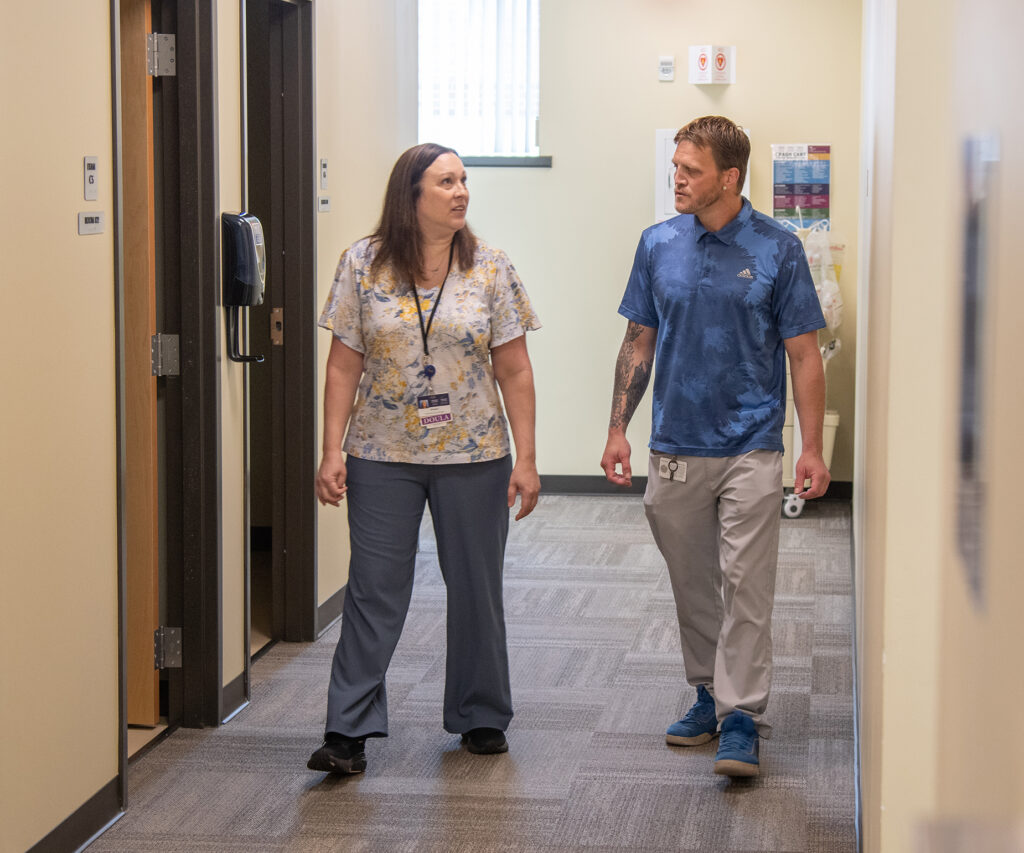
Rick Frey, one of The Wright Center’s certified recovery specialists, talks with colleague Jill Kalson at The Wright Center for Community Health Wilkes-Barre, 169 N. Pennsylvania Ave. Frey is part of a team-based approach that integrates substance use disorder treatment with behavioral and primary health services.
‘I can’t keep doing this’
A series of difficult blows starting in 2018 – including back-to-back DUI charges and the end of his relationship with the mother of his two children – left Frey struggling to regain stability.
“I realized I can’t keep doing this,” Frey said. “My daughter wouldn’t even look at me. So, I just surrendered.”
He cut ties with old friends and went into a rehabilitation program for 45 days. From there, he lived for seven months in a halfway house, followed by a year in a sober living house. It was the longest he’d ever maintained sobriety. Inspired by the counselors and staff who helped him with his recovery journey, he enrolled at Luzerne County Community College (LCCC) to earn his associate degree in human services. He began his current career path at Clearbrook Treatment Centers, where he started as an intake coordinator and then served in various roles, including case manager.
While earning his associate degree and working at Clearbrook, Frey began pursuing certification as a recovery specialist through Project PROGRESS. It was during this time that he was first introduced to The Wright Center and its unique services for people with substance use disorders, including its Pennsylvania-designated Opioid Use Disorder Center of Excellence. The Wright Center uses a team-based approach to tailor treatment plans to each patient, integrating treatment for substance use disorder with behavioral and primary health services.
Impressed by the passion and expertise of The Wright Center’s staff, Frey was eager to join the team. He is now based at The Wright Center for Community Health Wilkes-Barre, 169 N. Pennsylvania Ave.
He remembers the techniques his counselors used throughout his recovery, especially the frustrating moments when they helped him see how his excuses were holding him back. Today, he uses those same methods with his patients.
“Recovery isn’t easy and everyone’s journey is different,” Frey said. “But I learned that you can be the victim of your trauma, or you could use it to help you transform into something better and stronger.”
‘Make a difference’
Frey is just one of 101 people who participated in certified recovery specialist training programs through Project PROGRESS, which concluded in September. A total of 76 people completed the training; dozens of them went on to work with people recovering from substance use disorders at companies across the region.
“When I hear Rick’s story, and the stories of so many others who successfully went through the program, I feel like The Wright Center has made a difference,” said Shannon Osborne, a project manager who oversaw Project PROGRESS at The Wright Center. “I am grateful to work on projects that provide such positive outcomes for people in our communities.”
As he celebrates five years of sobriety, Frey is attending Misericordia University part-time, working on his bachelor’s degree in social work, with plans to pursue a master’s degree in social work and public administration. When he isn’t studying or working with his clients, you can find the former high school athlete coaching his 11-year-old son’s football and basketball teams. Recently, he volunteered as an assistant coach for his 8-year-old daughter’s soccer team, helping lead them to an undefeated season.
In addition to guiding his kids’ sports teams to victory, Frey dreams of becoming more deeply involved in the conversation about how to best address the still-growing addiction crisis locally and nationwide.
“We need advocates to show up at rallies, meet with our elected representatives, and talk about what we can do to help people,” Frey said. “Everybody knows someone who has been impacted by addiction.”
For more information about The Wright Center for Community Health and The Wright Center for Community Health’s Opioid Use Disorder Center of Excellence, go to TheWrightCenter.org or call 570-230-0019.
Get to know Project PROGRESS
- Funded in part through an Appalachian Regional Commission INSPIRE grant.
- Led by The Wright Center for Community Health with regional partners including Wayne Pike Workforce Alliance, The Institute, Luzerne County Community College, and Northeast Pennsylvania Area Health Education Center.
- Hosted six Certified Recovery Specialist training sessions attended by 101 individuals.
- Of the 76 people who completed the training, 48 earned certifications as either certified recovery specialists, certified family recovery specialists, certified recovery specialist supervisors, or a combination of the certifications.
- Learn more at projectprogressnepa.org.
